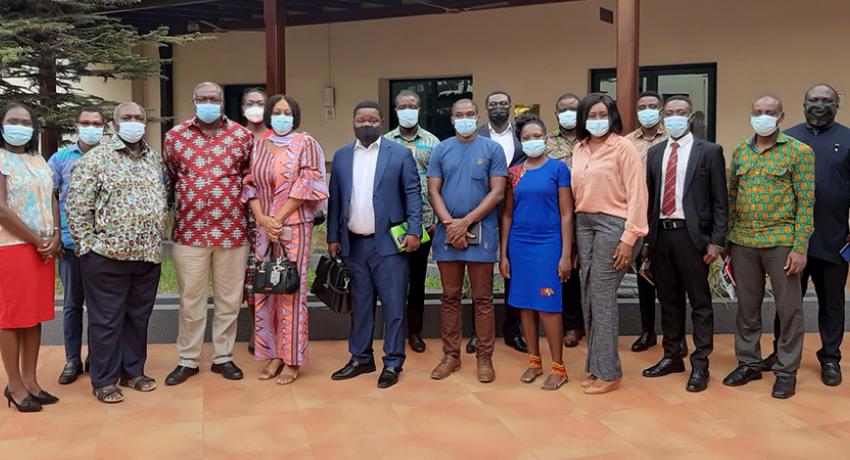ACCRA, 20 January, 2021 – A new study by a team of Ghanaian economists in collaboration with the Brookings Institution has identified agro-processing and tourism as two of the sectors that could be relied on to potentially address Ghana’s youth unemployment challenge and enhance competitiveness and productivity of small and medium-sized firms.
The team comprised Prof Ernest Aryeetey, Africa Research Universities Alliance (ARUA); Dr Priscilla Twumasi Baffour and Dr Ebo Turkson, both of the Department of Economics, University of Ghana.
At a dissemination workshop co-organized by the Institute of Statistical Social and Economic Research (ISSER) and held on 20 January 2021 at the Fiesta Royale Hotel in Accra, the project team shared findings of the study to government representatives, agro industry and tourism practitioners, academia and the media.
Prof Peter Quartey, Director of ISSER, who chaired the event, thanked the project team for a timely study: “Sadly, we continue to see once vibrant companies folding up with office spaces ending up as churches or warehouses,” he said. “This study is important because of its potential to contribute to finding sustainable solutions to Ghana’s unemployment challenge.”
Discussion Highlights
The workshop featured a brief project overview by Prof Aryeetey (project lead), and a detailed presentation of findings by Dr Twumasi Baffour, followed by open discussions led by Dr Turkson.

While the agro processing and tourism sectors are not new, there was consensus among participants that their impact could be maximized through some interventions, including:
Build resilience through strong, adaptable skills: Strong skills, especially technical skills and resource management skills, are vital in improving the employability of the youth, and building a resilient economy resistant to shocks. It is therefore crucial to align training with the ever evolving needs of the labour market, notably by giving more attention to the practical aspect of training programmes.
Collaboration on pre-employment activities: Participants emphasized the need for industry practitioners to be more open to accommodate students for pre-employment support activities.
Finally, participants emphasized the need to improve monitoring and regulatory enforcement to lessen the burden of unfair competition on companies operating in these sectors.
In addition to validating findings of the study, the workshop served to incorporate the learned insights and first-hand experiences of participants.
IWOSS
The study, titled “Industries without Smokestacks (IWOSS) in Africa - Ghana Country Case Study” derives from the emerging concept of industries without smokestacks (IWOSS), considered as the new complementary approach for large-scale job creation in Africa. It shares several features with manufacturing, and is characterized by tradable output, ability to absorb a large number of moderate to low skilled workers and provide good wages, in addition to environmental friendliness and the display of potential for productivity increases to accelerate structural transformation.

For interview requests with the team of researchers of the IWOSS Ghana case study or more information, contact Dr Priscilla Twumasi Baffour - Email: ptbaffour@ug.edu.gh Tel: (+233) 244 288664

